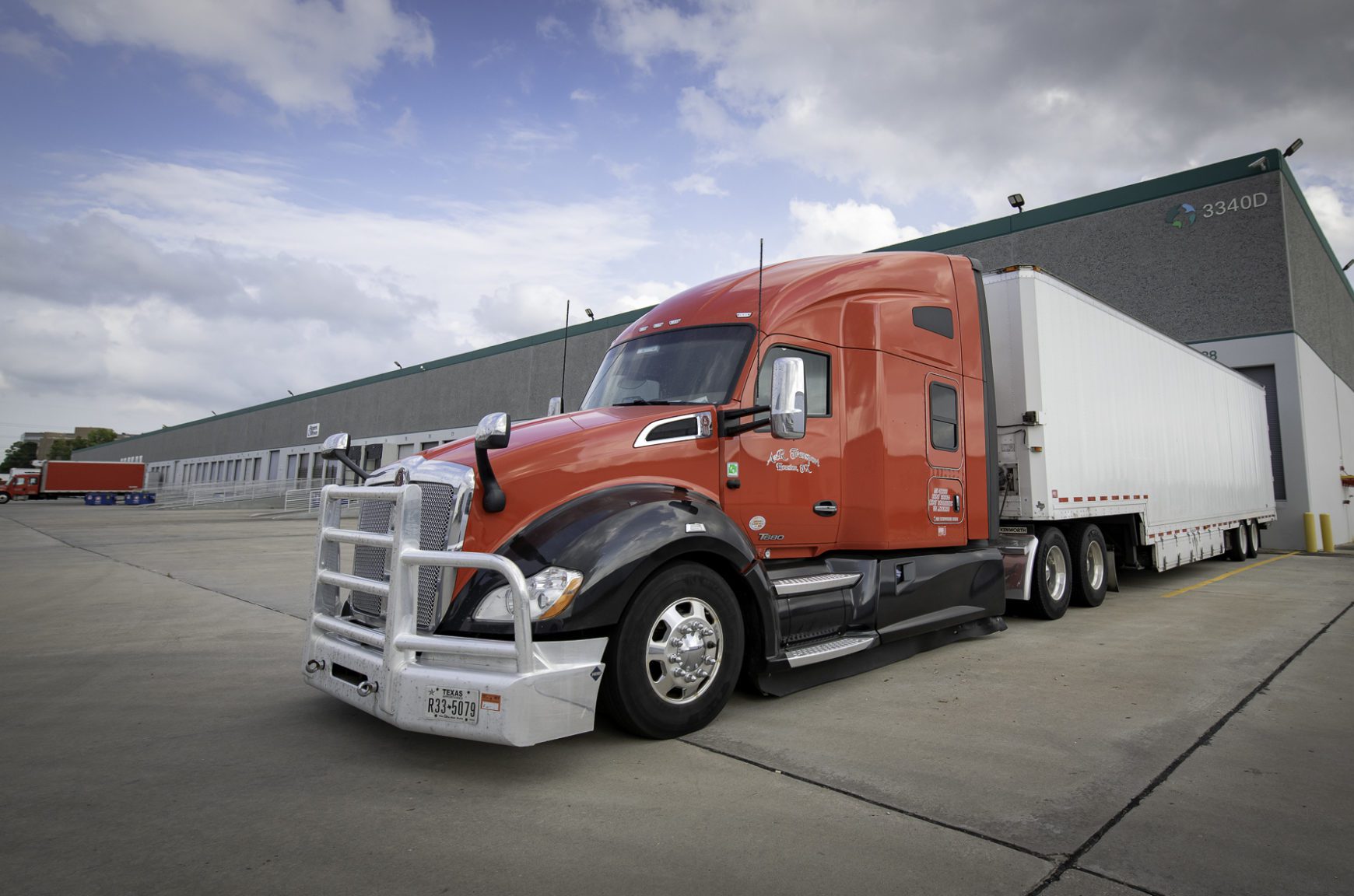Into Freight Brokerage Business: How to Gain an Edge in This Industry?
In the broader transport sectors, a lot of people who need shipping like business owners, distributors, and suppliers of goods and services sign contracts with trucking companies to transport goods to intended destinations. However, there is still a significant quantity of freight brokerage business that is managed by freight brokers. Truck brokering aims to maximize the profits acquired through freight hauling as they facilitate lucrative cargo hauling interactions between freight companies and trucking firms.
There are many different titles used in the industry to refer to a freight broker. Other popular titles include truck broker, transportation broker, transportation intermediary, or logistics consultant. Freight brokerage businesses are one of the important links in the supply chain of logistics services. This type of businesses has become one of the industries playing an important role in socio-economic development. The idea of a transport broker business was born to meet the increasing demands of the transport industry.
Why Do Customers Need a Freight Brokerage Company?
Before starting any business, it is advisable to learn as much about the industry as possible. You need to have clear answers to all of these questions before you begin, such as: What does trucking involve? What are the licensing or registration requirements? What are the most common failures of freight brokerage companies in this industry? You will also need to understand what the role of a freight broker is within the broader transport industry.
Transport brokers play an important role in cargo handling for transport companies. It is the middleman who arranges transportation contracts between the goods owner and the ship owner, the carrier and receives a commission from the ship owner and carrier. Freight broker are non-asset transportation providers that operate under a brokerage authority. The value a freight broker brings is capacity and service, so a company does not have to have relationships with 100’s of motor carriers.
The segmentation in the market stats on total truckload motor carriers is the one which drives the difficulty in finding the best fit for your clients. Outside the big names in trucking, it can be like looking for a needle in a haystack, so many companies turn to the brokerage non-asset logistics service provider market to help them in their capacity needs.
Traps to Avoid in Freight Brokerage
A fright bbrokerage business has strong potential profit-wise. All experts in the transport and logistics industry agree that now is the perfect time to begin a freight brokering company. Also, freight brokerage companies are indispensable in the goods and cargo transport industry. Basically, such firms keep the industry going. In today’s litigious society, freight brokerage firms have to minimize the exposure from a lawsuit and still run our business. This becomes increasingly more difficult each year. The following are some traps your firms may meet when jumping into this industry.
#1. Compliance and legal requirements
One of the most crucial aspects of the truck brokerage business is compliance. As with all industries, there are rules, regulations, and requirements. If you learn how to comply with these rules, then you will get off to a great start. Procedures such as late renewal penalties, bond claims, and consumer complaints that can deplete your money and time can be avoided by keeping yourself informed and secure. Complying with regulations is extremely important as the truck broker industry grows again.
This steady growth over the last couple of years is due to one main reason: A steady increase in local freight volumes within the United States and also, an increase in export and import cargo. This steady increase in cargo business calls for more players in the sector, especially trucking brokers. Your efforts in choosing this path will help to move increasing freight volumes across the US and overseas.
Starting your own freight brokerage career is relatively straightforward. Like any other business, you will need to fulfill some legal requirements, especially getting bonded and acquisition of an operating license. If you are a new to the industry, ample training as well as direct industry experience. This will help you understand how to set up your business as well as all your legal obligations and requirements that will ensure you remain compliant.
It is important to acquire all the necessary information to guide you through the entire process. This book is precisely created to be an excellent resource for all aspiring trucking brokers.

#2. Communications and negotiations failure
A huge part of this job is including negotiations and deal closing. This business will require and put you in positions to be in constant communication with others within the freight and trucking industry. Therefore, your people skills need to be up to speed, especially via email or telephone.
To avoid silly mistakes when communicate with your customers, educating yourself constantly is key. You should also expect to gain valuable and practical knowledge regarding the functions and responsibilities in time by taking notes of each situation you’ve encountered so far. You will also need to go through the Broker Operation Manual that contains all the data and theoretical info that is essential for any expert broker. Then you will need to put aside at least one week to get some hands-on training at a trucking firm or brokerage so that you may develop some aforementioned essential skills.
Generally, negotiations made in person are different from those made over the phone. You will fare well if you prepare for phone negotiations as these will be the most common. First, ensure that you properly understand what your terms and targets are. Next, think about how you will convince your clients to accept your terms. Most importantly, always leave room for negotiations –most clients will try and negotiate the fees.
Some clients will ask a lot of questions, and it is an essential part of the job to be prepared with answers. Apart from the clients, transport and shipping partners will also have sets of questions for any freight that your customers wish to transport. Remain confident as you answer. Coherent speech in a friendly tone will always win over the other person. Remember that when you stumble, you appear weak and indecisive, so make sure that you are always prepared. You are the expert in this business; therefore, you should sound like it.
Through experience, you will eventually learn how to negotiate fair and affordable shipping rates and how to relate well with shipping companies. Also remember that proper training can lead to professional job openings. There are plenty of logistics, transport, and shipping companies that could use the consultation services of a well-trained expert.

#3. Licensing in freight brokerage business
The logistics and supply chain market have a long list of terms that often confuse people, especially the one who want to choose the suitable freight services for the company.
While there is numerous information on the internet regarding the differences between a motor carrier and freight broker, there are very few information on comparing a freight broker to a logistics services provider. The terms freight broker and logistics service providers are often used interchangeably, the two are markedly different. To help clear the air, these are the definitions of a logistics service provider and a broker, then move on to a comparison and the reasons why you should care about them.
To carry out broker duties efficiently, you will have to be licensed. All truck brokers are licensed by any one of a number of government agencies. These include the Federal Maritime Commission and the Federal Motor Carrier Safety Administration which falls under the US Department of Transport. Freight brokers can also seek registration from the Transportation Security Administration. This one is for managing air freight cargo. Getting licensed with the appropriate government agency is one of the first things that you should seek to achieve before you begin work. Clients definitely prefer working with registered agents for their own safety and well-being.
Operating Tips to Succeed in This Freight Industry
As a broker, you can assimilate yourself into any industry and not just transport and logistics. The most successful freight brokers are those experienced in sales and customer service. Interpersonal relationships are a crucial aspect for successful brokers. The freight brokers need to have the necessary people skills and understand how to interact with clients. If you are new to this industry, you can always learn the important industry skills as these can be taught.
Using agents
Sometimes brokers prefer to work with agents whenever they want to develop additional operations. An agent is simply an independent contractor found in a specific area and represents the freight broker. This offers you a great way to have a presence in regions other than where you are located. Such an arrangement will come in handy especially when you do not have the volumes that would justify opening a fully-fledged office.
If you are an aspiring broker, then you will fare much better if you connect with a brokerage company. Such a connection will provide you with the best chance yet to build relations and interact with clients. A good brokerage firm will ensure that you have access to good quality tools, equipment, software, and all other things that a broker needs. Such a firm needs to be flexible as well as financially stable.

Case in point is the freight brokerage firm Trangistics. This company is based in Oregon, even though it has agents all over the U.S., including Nevada, California, Texas, Alaska, Illinois, Alabama, Georgia, North Carolina, among others. Since the agents are not freight brokers, they often operate from a home office and only have access to a phone and computer. On most occasions, agents operate and function very similarly to how truck brokers function. The only difference is that agents operate under the auspices of the broker. The broker still retains the legal recognition, bond, and responsibility of ensuring cargo is transported on time.
An experienced freight broker will try and acquire liability insurance and contingent cargo coverage that ensure they are covered should the transporter’s insurance fail. If you can acquire this kind of insurance cover your clients will tend to trust you more and be happy knowing that their freight is adequately covered.
Managing finances
As a freight broker, you must pay transporters and carriers before you receive payment from your clients. For this reason, you will most likely require a line of credit. As a truck agent, if you do not pay the trucks on time, then they will not be willing to transport any cargo for you in the future. Moreover, with no trucks willing to haul your freight, then you will be in serious trouble. Therefore, always ensure that you make timely payment for prompt shipment of cargo. The bottom line for any successful broker is to ensure that they have the necessary license and required documentation, sufficient insurance cover, and sound finances. If you do not meet these requirements, then transporters may start ignoring your calls, stop returning your emails, and even offer very high charges for their services.
Due diligence
As a dedicated broker, you must ensure that you get all the information necessary from the shippers or transporters. This information will come in handy when you provide information to your clients or vice versa.
You will also need to get as much information about the package from your client as possible. This information will enable your transporters to provide you with accurate rates, time, and so on. Sometimes transporters call clients directly when you do not have an answer they need. You do not want to be in this situation, so do your due diligence and acquire all the essential information needed.
Using these measures puts you in a great position to make estimates about the amount of time you need to spend undertaking each activity. Try and note the amount of time spent on each activity. Now think about the impact of each activity on your bottom line. Is it possible to pinpoint the activities that have contributed to your revenues in a major way?
Marketing And Finding Clients For Your Firm
Above are some information you may deal with when becoming a freight broker. And now your business is up and running, you need to begin marketing your firm and your services to find clients. There are various ways of marketing your firm. Some ways are better and more effective depending on factors, such as your location and so on. One of the best pathways to success is heading where others are not. This means delving into opportunities that others are not aware of and perhaps even avoiding where everyone else is headed.
There are plenty of activities that we engage in that involve marketing. For instance, you probably reached out to shippers or clients to find new business. Maybe you put your business out there on different social media platforms to advertise your business. Perhaps you also sent out some Twitter messages or even prepared a marketing message on or e-mail campaigns. These are extremely important and most often than not, generate great awareness of your company’s existence. Clients always want to know whom they are dealing with. Since you are unlikely to get to meet shippers and transporters in person, the next best platform is a business website.
Therefore, take the time to create a professional website. This website should be informative, user-friendly, and presentable. It should have your official business name, a logo, and a clear indication that you are a freight brokerage firm. You need to let your potential clients know about your services, any specialization, experience, and even accreditations.
Keeping a diverse and broad client base is critical to be a successful freight broker. Losing out on one company or customer doesn’t seem as heart-breaking if you have a ready database of several other clients to tap into. Top freight brokers understand the value of using a broader customer base, so you don’t depend on a single company for business. If one company who controls a huge chunk of your revenue moves their business somewhere else, you’ll be in trouble. Therefore, even though you may have a few big customers bringing regular business, do not underestimate the power of building a broad client list.
The Bottom Line
Freight brokers is service providers. You do not own transportation assets, so your assets are people, technology, industry knowledge and ability to pull it all together to get the job done for your team and your customers. Your mission is to help to align customers with the most reputable and service-oriented team they can find for your company and understand there will be service failures at times.
Pay close attention on how your business can provider recovers from the service failures and how to move forward so your business will not become the standard. One small thing to engage and make a good impression to your customers is through your online presence. Here at Envzone, we are providing the online presence which will create a professional image of your business to your customers. So, don’t hesitate to contact us.









